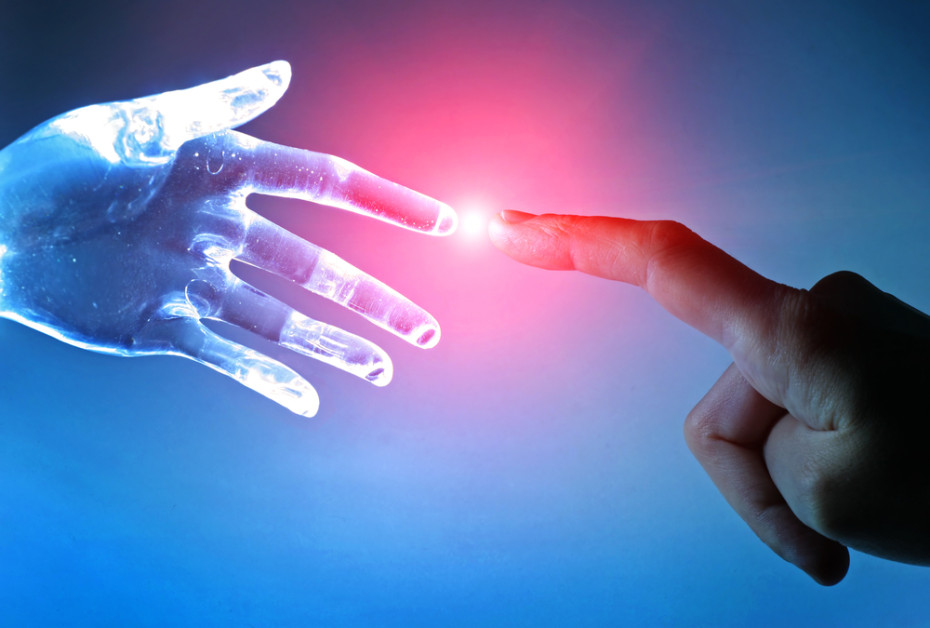While some robots may be out to take our jobs, there’s a big skills gap in the AI-fueled services industry just waiting to be filled.
copyright by venturebeat.com
 There will be two major drivers around the jobs of the future. The first will be what can be automated , and the second will be what level of comfort do we have for things being automated. However, far from the widespread fear that automation and artificial intelligence (AI) will make human workers redundant, it seems people are becoming more comfortable with the idea of automation and AI in the workplace every day. Recent research conducted by Adecco Group reveals that many employees feel AI will have a positive impact in creating a future workplace with a myriad of opportunities for more flexible, rewarding work.
There will be two major drivers around the jobs of the future. The first will be what can be automated , and the second will be what level of comfort do we have for things being automated. However, far from the widespread fear that automation and artificial intelligence (AI) will make human workers redundant, it seems people are becoming more comfortable with the idea of automation and AI in the workplace every day. Recent research conducted by Adecco Group reveals that many employees feel AI will have a positive impact in creating a future workplace with a myriad of opportunities for more flexible, rewarding work.
So if our current roles in the workplace are set to be replaced, what will we be doing instead? Here are five new jobs that are likely to see the light as a result of AI:
Robot Teacher
Robots are to be deployed everywhere from the classroom to hospitals, but who will ‘teach’ this new wave of bots the skills they are meant to apply so effortlessly, and, more importantly, who will teach robots how to teach each other so that AI can continue to scale?
AI Lawyer
In the UK and Europe, regulations are being drafted to govern the use and creation of robots and AI. This includes an ‘electronic personhood’ status assigned to address the rights and responsibilities, and indeed all acts carried out by AI-programmed robots.
Head of Robotic and Human Orchestration
Doing business today is not a case of choosing between human or machine. We’ve reached an age of human and machine. Orchestration will be key in implementing the right technologies, or the right people, for the job. The variable now is how the division of labor will be managed.
Head of Transformation
There are a million different companies and technology-driven solutions that all claim to make digital transformation happen quickly and seamlessly, but with the convergence of AI and big data, data scientists will be able to extract business changing information on a daily basis.
Autonomous Vehicle Fleet Managers
Vehicles will be synced to more content-aware, location-based apps which will enable cars within the same pool to communicate and share data, such as road conditions or speed. This shift will see the widespread adoption of autonomous vehicles. While cars may be able to navigate themselves, a person (or an Autonomous Vehicle Fleet Manager) will still need to be positioned in case of any anomalies as fleets go through various stages to become fully automated, and of course to be the human representative that interacts as passenger and customer requests.
Thank you for reading this post, don't forget to subscribe to our AI NAVIGATOR!
read more – copyright by venturebeat.com


While some robots may be out to take our jobs, there’s a big skills gap in the AI-fueled services industry just waiting to be filled.
copyright by venturebeat.com
So if our current roles in the workplace are set to be replaced, what will we be doing instead? Here are five new jobs that are likely to see the light as a result of AI:
Robot Teacher
Robots are to be deployed everywhere from the classroom to hospitals, but who will ‘teach’ this new wave of bots the skills they are meant to apply so effortlessly, and, more importantly, who will teach robots how to teach each other so that AI can continue to scale?
AI Lawyer
In the UK and Europe, regulations are being drafted to govern the use and creation of robots and AI. This includes an ‘electronic personhood’ status assigned to address the rights and responsibilities, and indeed all acts carried out by AI-programmed robots.
Head of Robotic and Human Orchestration
Doing business today is not a case of choosing between human or machine. We’ve reached an age of human and machine. Orchestration will be key in implementing the right technologies, or the right people, for the job. The variable now is how the division of labor will be managed.
Head of Transformation
There are a million different companies and technology-driven solutions that all claim to make digital transformation happen quickly and seamlessly, but with the convergence of AI and big data, data scientists will be able to extract business changing information on a daily basis.
Autonomous Vehicle Fleet Managers
Vehicles will be synced to more content-aware, location-based apps which will enable cars within the same pool to communicate and share data, such as road conditions or speed. This shift will see the widespread adoption of autonomous vehicles. While cars may be able to navigate themselves, a person (or an Autonomous Vehicle Fleet Manager) will still need to be positioned in case of any anomalies as fleets go through various stages to become fully automated, and of course to be the human representative that interacts as passenger and customer requests.
Thank you for reading this post, don't forget to subscribe to our AI NAVIGATOR!
read more – copyright by venturebeat.com
Share this: